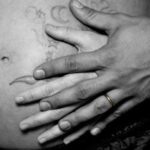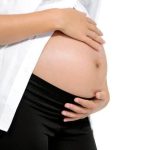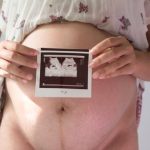Early Pregnancy Diarrhea
There are many different things that can cause diarrhea during early pregnancy, including hormonal changes, food poisoning, and changes in the bacteria that live in your gut. While diarrhea can be uncomfortable and inconvenient, it usually isn’t a cause for concern. However, if you have diarrhea that lasts for more than a few days, or if you have other symptoms along with your diarrhea, you should talk to your doctor.
If you are experiencing diarrhea during early pregnancy, there are a few things that you can do to help relieve your symptoms. Drink plenty of fluids, especially water, to help replace the fluids you are losing. You may also find that drinking sports drinks, like Gatorade, can help to replace some of the electrolytes that you are losing. Avoid caffeine and alcohol, as they can make your diarrhea worse.
You can also try to eat bland, easy-to-digest foods like bananas, toast, rice, and applesauce. If you are having a hard time keeping anything down, try drinking a smoothie or eating a popsicle. If you are still having problems, your doctor may prescribe a medication to help relieve your diarrhea.
Most cases of diarrhea during early pregnancy are nothing to worry about, but if you are having any problems, be sure to talk to your doctor.
Indigestion Early Pregnancy
Morning sickness is a well-known symptom of early pregnancy, but many women also experience indigestion. Indigestion is a general term that refers to discomfort or pain in the upper abdomen. It can be caused by a number of things, including gas, acid reflux, and pregnancy.
Indigestion is common in early pregnancy because the hormones that are responsible for the pregnancy are also responsible for the changes that occur in the digestive system. These hormones can cause the stomach to produce more acid, which can lead to indigestion.
Indigestion can also be caused by eating certain foods. Fatty and spicy foods are two of the most common triggers of indigestion. If you are experiencing indigestion, it is a good idea to avoid these types of foods.
There are a number of things you can do to help relieve indigestion. One of the best things you can do is to eat small, frequent meals. This will help to distribute the food evenly through your digestive system. You should also avoid drinking fluids with your meals.
You can also try taking over-the-counter medications to help relieve indigestion. There are a number of different medications available, so you should talk to your doctor to find out which one is best for you.
If you are experiencing indigestion, there is no need to worry. It is a common symptom of early pregnancy and it will most likely go away as your pregnancy progresses.
Baby Girl Symptoms During Early Pregnancy
The symptoms of early pregnancy in a baby girl are very similar to the symptoms of early pregnancy in a baby boy. The most common symptom of early pregnancy is a missed period. Other common symptoms of early pregnancy include nausea, vomiting, fatigue, and bloating. These symptoms can be caused by a number of things, so it is important to see a doctor if you are experiencing any of them to determine whether or not you are pregnant.
If you are pregnant, your doctor will likely perform a pregnancy test to confirm the pregnancy. If the pregnancy test is positive, your doctor will likely order a series of tests to determine the health of the baby and the pregnancy. These tests may include an ultrasound, a blood test, and a fetal heart rate monitoring.
If your baby girl is healthy, your doctor will likely recommend that you rest and eat a healthy diet. You will also need to see your doctor regularly for prenatal care. Prenatal care is important for the health of both the mother and the baby.
If you are experiencing any symptoms of early pregnancy, it is important to see a doctor. Early diagnosis and treatment can help ensure the health of both the mother and the baby.
Bleeding Early In Pregnancy
Bleeding during early pregnancy is common, occurring in about one-third of pregnancies. The most common cause of early bleeding is implantation bleeding, which happens when the fertilized egg attaches to the uterine wall. Other causes of early bleeding can include infections, miscarriage, and ectopic pregnancy.
If you experience any bleeding during early pregnancy, it is important to call your doctor and schedule a appointment. Bleeding can be a sign of a problem, such as a miscarriage, and it is important to get checked out to ensure that both you and your baby are healthy.
Clear Blue Early Pregnancy Test
The Clear Blue Early Pregnancy Test is an over-the-counter urine test that is used to detect the presence of the hormone human chorionic gonadotropin (hCG) in a woman’s urine. HCG is produced by the placenta during pregnancy and is the hormone that is used to detect a pregnancy with a home pregnancy test.
The Clear Blue Early Pregnancy Test is a qualitative test, which means that it can only determine whether or not hCG is present in the urine. It cannot determine the amount of hCG present. The test is designed to be used as early as the first day of a missed menstrual period.
The Clear Blue Early Pregnancy Test is a one-step test. This means that the test can be performed without the need for any additional components or instructions. The test is performed by urinating on the absorbent end of the test stick and then waiting for the results to appear.
The Clear Blue Early Pregnancy Test is available in both a manual and an automatic format. The manual format is a test stick that is dipped into a cup of urine. The automatic format is a test strip that is inserted into a test cassette. The test cassette is then placed into a urine stream or into a sample of urine.
The Clear Blue Early Pregnancy Test is available at most drug stores and retail stores that sell home pregnancy tests. The test is also available online.

Welcome to my fertility blog. This is a space where I will be sharing my experiences as I navigate through the world of fertility treatments, as well as provide information and resources about fertility and pregnancy.





